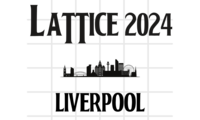Speaker
Description
Quantum simulation of gauge theories has already crossed its initial phase and is rapidly becoming a solid testing ground for novel quantum algorithms. However, the challenges are numerous for robust and reliable quantum simulation of gauge theories, and in this talk I will discuss our ongoing work to address a few challenges. I will describe ground state preparation for gauge theory Hamiltonians on 1+1D and 2+1D using Variational algorithms and Quantum Approximate Optimisation Algorithm. Specifically, on 2+1D we work with a matter-free non-Abelian SO(3) lattice gauge theory in a phase where the global charge conjugation symmetry is spontaneously broken. In this context, we demonstrate how the exact imposition of the non-Abelian Gauss Law in the rishon representation of the quantum link operator, significantly reduces the degrees of freedom, and thus alleviates the challenge dealing with a large Hilbert space for gauge theories in contrast to quantum spins. We also provide experimental results from the quantum hardware, IonQ. A major challenge to the reliability and robustness of practical quantum computing is its sensitivity to errors and noise. In the context of quantum simulation of gauge theories, I will describe an effective scheme for quantum error mitigation by identifying errors that break the symmetries of the ideal quantum state and removing them via post-selection.

